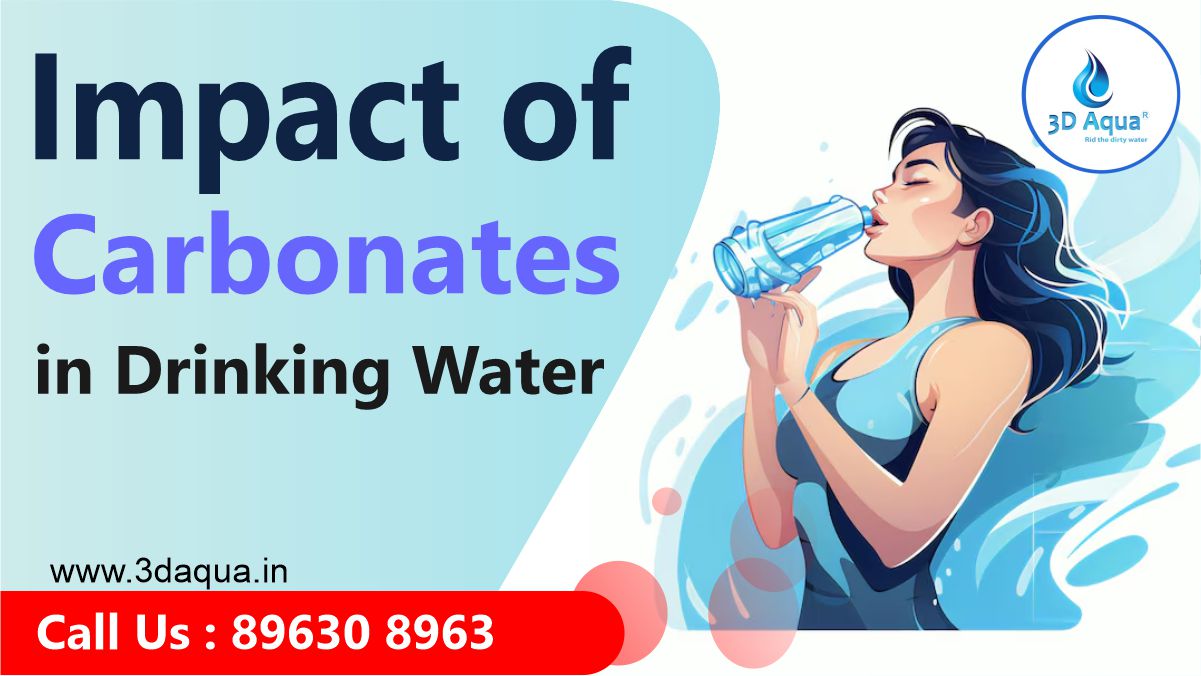Carbonates in Drinking Water
Carbonates in drinking water, often manifesting as hardness, significantly influence water quality and human health.
This article delves into the sources of carbonates, their positive and negative impacts on health, and the broader implications for water systems.
We will also explore the solutions available to manage water hardness and maintain optimal water quality.
What Are Carbonates in Drinking Water?
Carbonates in drinking water primarily present themselves as hardness, which includes both temporary and permanent forms. Alkalinity, often used interchangeably with hardness, refers to the concentration of bicarbonate (HCO₃⁻) ions. When water containing bicarbonate is exposed to acids, the bicarbonate converts into carbon dioxide (CO₂) gas.
This reaction moderates pH changes compared to water without bicarbonates. Understanding this chemical behavior is crucial for managing water quality and treatment processes.
Sources of Carbonates in Drinking Water
The main sources of carbonates in drinking water are:
- Natural Sources: Dissolved polyvalent metallic ions, including calcium and magnesium, primarily contribute to water hardness. These ions typically originate from sedimentary rocks like limestone and chalk, which dissolve into groundwater through natural processes. Other ions such as aluminum, barium, iron, manganese, strontium, and zinc also add to the overall hardness but to a lesser extent.
- Runoff and Seepage: Surface runoff and groundwater seepage from soils enriched with these minerals further contribute to water hardness.
- Human Activities: Certain agricultural and industrial practices can exacerbate the hardness of water by increasing the dissolution of minerals into groundwater systems.
Positive Impacts of Carbonates in Drinking Water
While the concept of hardness often carries a negative connotation, there are several benefits to having carbonates in drinking water:
- Health Benefits: Calcium and magnesium, the primary contributors to water hardness, are essential minerals for human health. Calcium supports bone health and cardiovascular function, while magnesium is crucial for muscle function, nerve transmission, and overall cardiovascular health. Adequate intake of these minerals through drinking water can help meet daily nutritional requirements.
- Cardiovascular Health: Several epidemiological studies suggest a link between water hardness and reduced cardiovascular mortality. Magnesium, in particular, has been associated with protective effects against cardiovascular diseases. Although these studies do not establish direct causation, they support the notion that mineral-rich water may contribute to better heart health.
Negative Impacts of Carbonates in Drinking Water
Despite the benefits, there are notable negative impacts associated with high carbonate levels in drinking water:
- Health Concerns: Excessive hardness has been proposed as a risk factor for exacerbating eczema. Hard water can leave metal or soap salt residues on the skin, potentially irritating and triggering flare-ups in individuals with atopic eczema.
- Increased Soap Consumption: Hard water reacts with soap to form soap scum, which is less effective for cleaning. This leads to increased soap usage, higher household costs, and potential residues on skin and clothing.
- Scaling Issues: In domestic and industrial settings, hard water leads to the formation of scale deposits in pipes, hot water heaters, and other equipment. This scaling reduces heat efficiency, increases energy consumption, and requires frequent maintenance.
- Corrosion Risks: Hard water can cause corrosion in plumbing systems. Conversely, untreated soft water, which lacks calcium and magnesium, is highly corrosive and can leach metals like lead and copper from pipes into drinking water. This poses significant health risks.
Addressing the Challenges: Water Treatment Solutions
Managing water hardness effectively requires appropriate treatment solutions. Here are some methods to address the challenges associated with carbonate hardness:
- Water Softening: The most common method for reducing water hardness is ion exchange using water softeners. These systems replace calcium and magnesium ions with sodium or potassium ions, effectively reducing hardness. Advanced water softening plants, like those manufactured by 3D Aqua, utilize the latest technology to deliver high-quality water treatment solutions. For more information, you can contact 3D Aqua at 8963089630 or via email at info@3daqua.in.
- Reverse Osmosis: This filtration process uses a semipermeable membrane to remove dissolved minerals and other contaminants from water. Reverse osmosis is effective in producing soft, high-quality water suitable for various applications.
- Distillation: This method involves boiling water and condensing the steam to separate minerals and impurities. Distilled water is free of hardness but may lack beneficial minerals.
- Blending: In some cases, blending hard water with softened water can achieve desired hardness levels, balancing mineral content and reducing scaling and corrosion issues.
Taste and Acceptability
The taste of drinking water can be influenced by its mineral content. Calcium and magnesium contribute to the flavor profile of water. Demineralized water, while neutral in taste, may be perceived as bland by some consumers. Consequently, bottled water producers often add minerals to enhance flavor. However, public water systems must balance mineral levels to ensure taste acceptability while maintaining safety and quality standards.
Conclusion
Carbonates in drinking water, primarily contributing to water hardness, have both positive and negative impacts on health and infrastructure. While calcium and magnesium are beneficial for health, excessive hardness can lead to problems such as scaling, increased soap consumption, and potential health concerns like eczema. Effective water treatment solutions, such as water softening, reverse osmosis, and distillation, can mitigate these issues and ensure high-quality drinking water.
For reliable water treatment solutions, 3D Aqua offers advanced technology and expertise in managing water hardness. For inquiries, please contact them at 8963089630 or info@3daqua.in.
By understanding and addressing the impact of carbonates in drinking water, we can improve water quality and health outcomes while ensuring efficient use of water resources.

